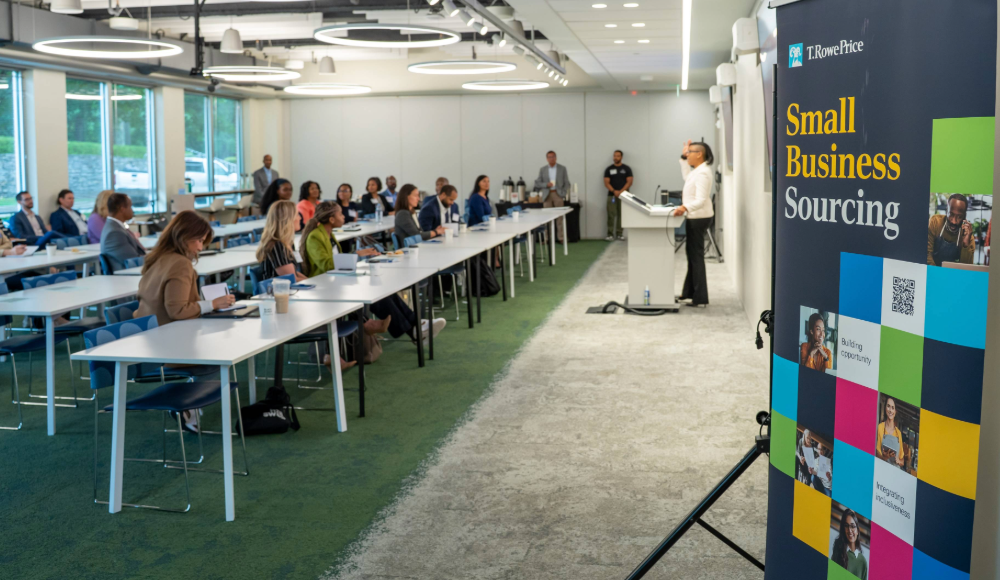
Diversity, Equity, and Inclusion (DEI)
A global commitment to our associates, our clients, and the communities we serve.
Bring yourself and your perspective. Come work with us.
View our Human Resources Privacy Notice:
California
Keep exploring
Dive deeper into what makes us an employer of choice.

Community Investment
Our approach to supporting the community focuses on expanding opportunities for all.

Life at T. Rowe Price
What's it like to work here? Our associates share their stories and career advice.
4498250












